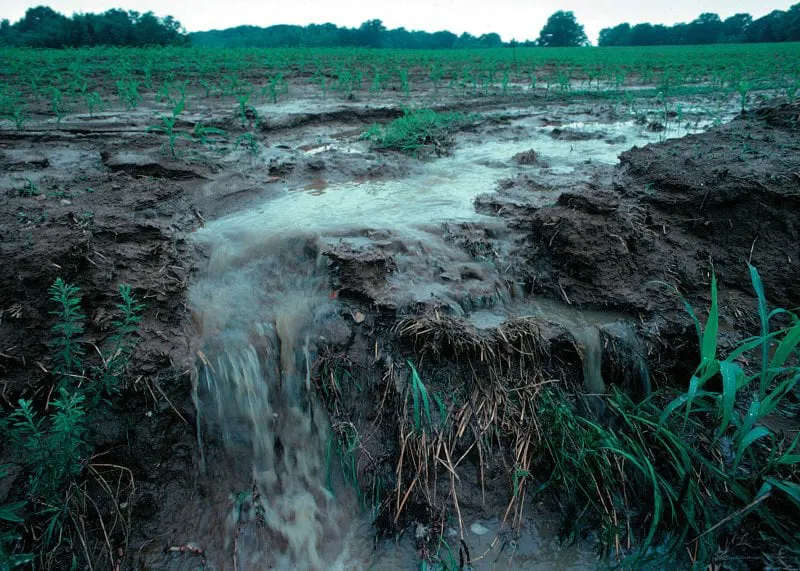Viewpoint: ‘A toxic soup of insecticides, herbicides and fungicides is wreaking havoc’ on soil in farms around the world
Viewpoint: ‘A toxic soup of insecticides, herbicides and fungicides is wreaking havoc’ on soil in farms around the world


Like citizens of an underground city that never sleeps, tens of thousands of subterranean species of invertebrates, nematodes, bacteria and fungi are constantly filtering our water, recycling nutrients and helping to regulate the earth’s temperature.
But beneath fields covered in tightly knit rows of corn, soybeans, wheat and other monoculture crops, a toxic soup of insecticides, herbicides and fungicides is wreaking havoc, according to our newly published analysis in the journal Frontiers in Environmental Science.
The study, the most comprehensive review ever conducted on how pesticides affect soil health, should trigger immediate and substantive changes in how regulatory agencies like the EPA assess the risks posed by the nearly 850 pesticide ingredients approved for use in the U.S.
[O]ur analysis, conducted by researchers at the Center for Biological Diversity, Friends of the Earth and the University of Maryland… encompassed 275 unique species or types of soil organisms and 284 different pesticides or pesticide mixtures.
[See GLP Profile: Friends of the Earth]
In just over 70 percent of those experiments, pesticides were found to harm organisms that are critical to maintaining healthy soils—harms that currently are never considered in the EPA’s safety reviews.
The ongoing escalation of pesticide-intensive agriculture and pollution are major driving factors in the precipitous decline of many soil organisms, like ground beetles and ground-nesting bees.
Read the original post

 | Videos | More... |

Video: Nuclear energy will destroy us? Global warming is an existential threat? Chemicals are massacring bees? Donate to the Green Industrial Complex!
 | Bees & Pollinators | More... |

GLP podcast: Science journalism is a mess. Here’s how to fix it

Mosquito massacre: Can we safely tackle malaria with a CRISPR gene drive?

Are we facing an ‘Insect Apocalypse’ caused by ‘intensive, industrial’ farming and agricultural chemicals? The media say yes; Science says ‘no’
 | Infographics | More... |

Infographic: Global regulatory and health research agencies on whether glyphosate causes cancer
 | GMO FAQs | More... |

Why is there controversy over GMO foods but not GMO drugs?

How are GMOs labeled around the world?

How does genetic engineering differ from conventional breeding?
 | GLP Profiles | More... |

Alex Jones: Right-wing conspiracy theorist stokes fear of GMOs, pesticides to sell ‘health supplements’




 Trust issues: What happens when therapists use ChatGPT?
Trust issues: What happens when therapists use ChatGPT? Fighting deforestation with CO2: Biotechnology breakthrough creates sustainable palm oil alternative for cosmetics
Fighting deforestation with CO2: Biotechnology breakthrough creates sustainable palm oil alternative for cosmetics Viewpoint — Fact checking MAHA mythmakers: How wellness influencers and RFK, Jr. undermine American science and health
Viewpoint — Fact checking MAHA mythmakers: How wellness influencers and RFK, Jr. undermine American science and health Viewpoint: Video — Big Solar is gobbling up productive agricultural land and hurting farmers yet providing little energy or sustainabilty gains
Viewpoint: Video — Big Solar is gobbling up productive agricultural land and hurting farmers yet providing little energy or sustainabilty gains California, Washington, Oregon forge immunization alliance to safeguard vaccine access against federal undermining
California, Washington, Oregon forge immunization alliance to safeguard vaccine access against federal undermining 30-year-old tomato line shows genetic resistance to devastating virus
30-year-old tomato line shows genetic resistance to devastating virus The free-range chicken dilemma: Better for birds, but with substantial costs
The free-range chicken dilemma: Better for birds, but with substantial costs ‘You have to treat the brain first’: Rethinking chronic pain with Sanjay Gupta
‘You have to treat the brain first’: Rethinking chronic pain with Sanjay Gupta
